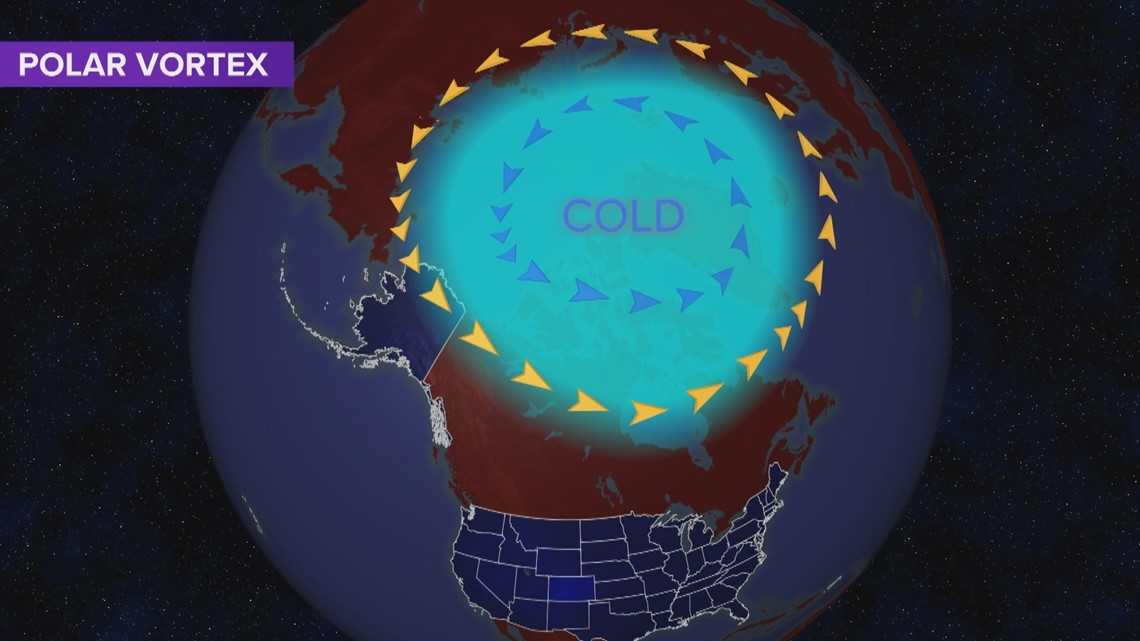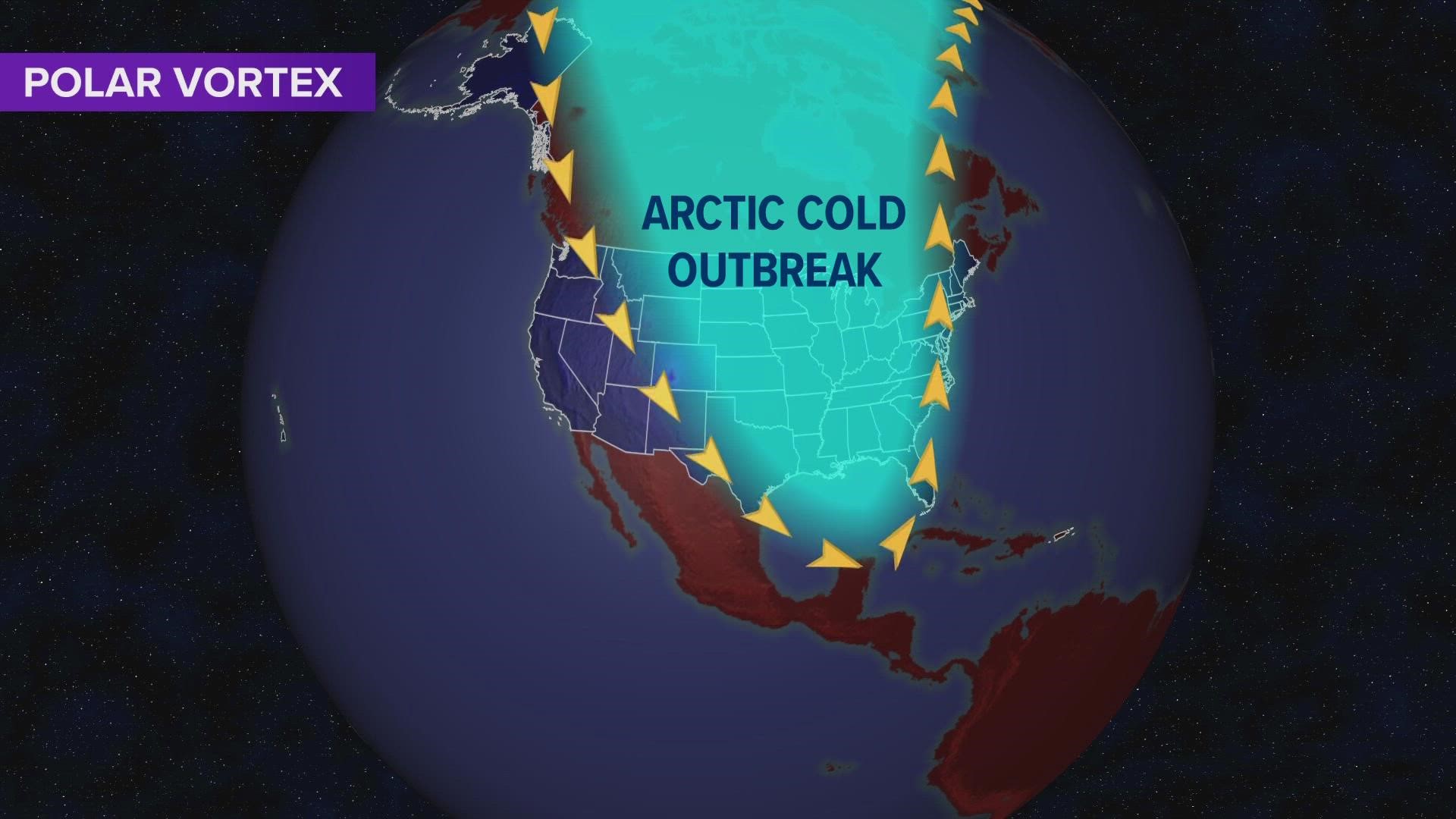DENVER — The polar vortex is a swirling batch of extremely cold air above the North Pole. The polar jet stream surrounds it and usually keeps most of the vortex contained to the north. But when that jet stream weakens or slows, it allows the vortex to spill down into the southern U.S.
The cold outbreak coming on Thursday is unusually strong. The main reason for this is the difference in temperature between the mid-latitudes where we live, and the Arctic.
The lesser the difference, the weaker the vortex. It’s warmer than normal in the arctic, and colder than normal, at least lately, in the mid-latitudes. That is helping to slow the polar vortex.
There is also a large area of high pressure over Alaska helping guide the jet stream to the south. Stratospheric warming can also play a role in altering the polar vortex.
The result will be record-breaking cold from Montana to Alabama -- although this storm will have to compete with a similar storm that hit the same area on about the same date in 1990.
In Denver, Thursday’s record low is -25 degrees, which happened during that 1990 storm. That -25 degrees is also the coldest temperature ever recorded in the month of December. (It also happened in 1876.)


The coldest temperature ever recorded in Denver is -29, back on Jan. 6, 1875.
Those records are likely safe, as the forecast is for Denver to bottom out in the -12 degrees to -18 degrees range.
The better chance to break a cold record in Denver will come on Friday morning. The record is a little less cold at -17 degrees, and the temperatures could drop down a few degrees colder that morning.
The high temperature on Thursday is also likely to be below freezing. The last time Denver had a high temperature in the negatives was more than eight years ago -- Feb. 5, 2014.
And the last time Denver had a high below -5 degrees was during that 1990 storm. It only got up to -7 degrees on Dec. 21.
It could be below zero in Denver for 33 consecutive hours, and below freezing for 65 consecutive hours.
Those are very unusual streaks. However, there are no official records for those stats.
SUGGESTED VIDEOS: Colorado Climate

